
News arrived by radio and runner. With first light broken across Dieppe and the surrounding area, much of the South Saskatchewan Regiment remained checked at the 24-metre bridge over the Scie River. Lieutenant-Colonel Cecil Merritt, his moustache doing little to mask his baby face, thought of the Canadian dead littering the road a short distance from HQ and, perhaps reminded of the father he had lost in the last war, recognised that something needed to be done. Mustering unimaginable courage, the 33-year-old officer left his position and headed for the men pinned down at the front.
The day – 19 August, 1942 – was turning out to be a disaster. It was one that had been months in the making, with the Soviet Union having long pressured its allies to open up a second front, to relieve German pressure to the east. The United States also wanted a chance to engage the Nazi regime on the continent. Churchill, it seemed, had little choice but to appease his allies, yet the dark shadows of Dunkirk, Singapore and, more recently, Tobruk weighed heavily on the British; their forces weren’t ready, nor were they well-equipped enough to liberate Europe. So, instead of an outright invasion, Churchill proposed a series of small-scale raids that might encourage Hitler’s armies away from the gates of Stalingrad and towards the Atlantic Wall. It would be up to Lord Louis Mountbatten, second cousin to the future Queen Elizabeth II and newly promoted chief of the Combined Operations Headquarters, to orchestrate these raids. Recalling the great success in Saint-Nazaire in March 1942, Mountbatten decided to escalate the aggressive nature of operations for the French coastal commune of Dieppe.
この記事は History of War の Issue 108 版に掲載されています。
7 日間の Magzter GOLD 無料トライアルを開始して、何千もの厳選されたプレミアム ストーリー、9,000 以上の雑誌や新聞にアクセスしてください。
すでに購読者です ? サインイン
この記事は History of War の Issue 108 版に掲載されています。
7 日間の Magzter GOLD 無料トライアルを開始して、何千もの厳選されたプレミアム ストーリー、9,000 以上の雑誌や新聞にアクセスしてください。
すでに購読者です? サインイン
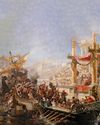
NAUMACHIA TRUTH BEHIND ROME'S GLADIATOR SEA BATTLES
In their quest for evermore novel and bloody entertainment, the Romans staged enormous naval fights on artificial lakes
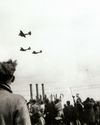
OPERATION MANNA
In late April 1945, millions of Dutch civilians were starving as Nazi retribution for the failed Operation Market Garden cut off supplies. eet as In response, Allied bombers launched a risky mission to air-drop food
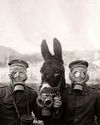
GASSING HITLER
Just a month before the end of WWI, the future Fuhrer was blinded by a British shell and invalided away from the frontline. Over a century later, has the artillery brigade that launched the fateful attack finally been identified?
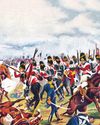
SALAMANCA
After years of largely defensive campaigning, Lieutenant General Arthur Wellesley went on the offensive against a French invasion of Andalusia

HUMBERT 'ROCKY'VERSACE
Early in the Vietnam War, a dedicated US Special Forces officer defied his merciless Viet Cong captors and inspired his fellow POWs to survive
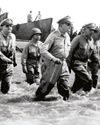
LEYTE 1944 SINKING THE RISING SUN
One of the more difficult island campaigns in WWII's Pacific Theatre saw a brutal months-long fight that exhausted Japan’s military strength

MAD DAWN
How technology transformed strategic thinking and military doctrine from the Cold War to the current day
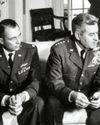
BRUSHES WITH ARMAGEDDON
Humanity came close to self-annihilation with the Cuban Missile Crisis, Broken Arrows’ and other nuclear near misses
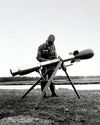
THE DEADLY RACE
How the road to peace led to an arms contest between the USA and USSR, with prototypes, proliferation and the world’s biggest bomb
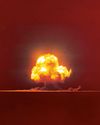
THE MANHATTAN PROJECT
Einstein, Oppenheimer and the race to beat Hitler to the bomb. How a science project in the desert helped win a war